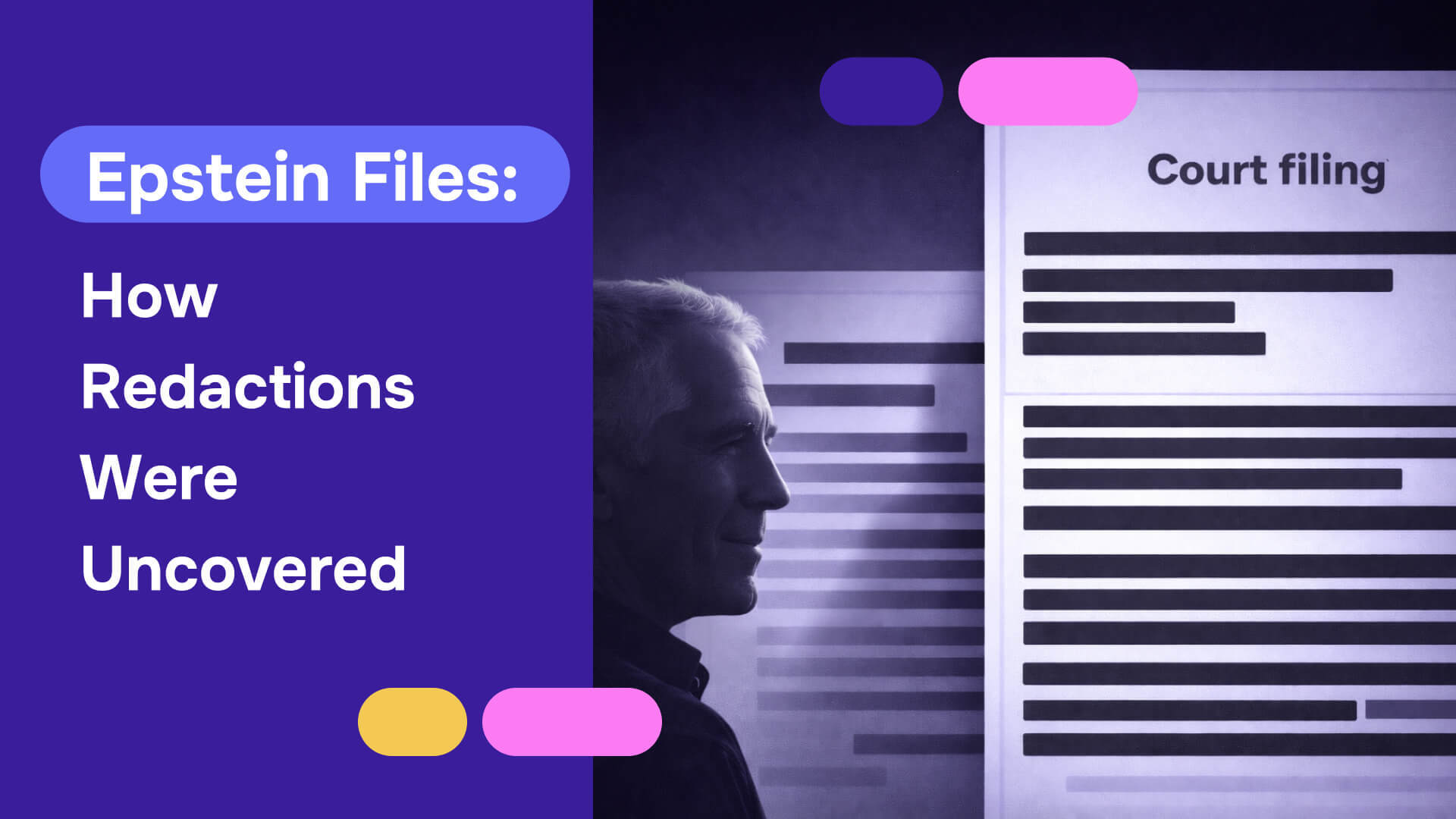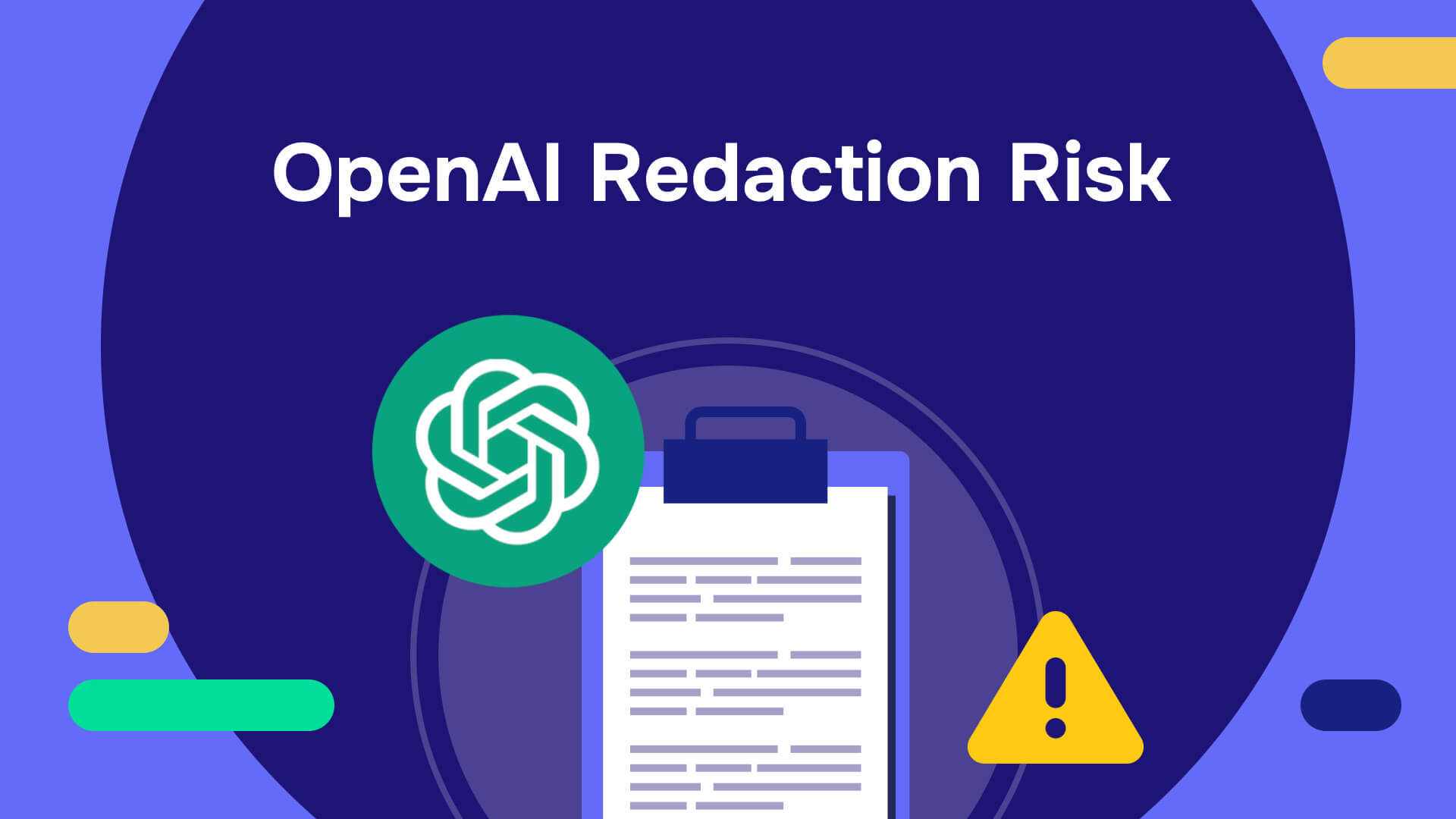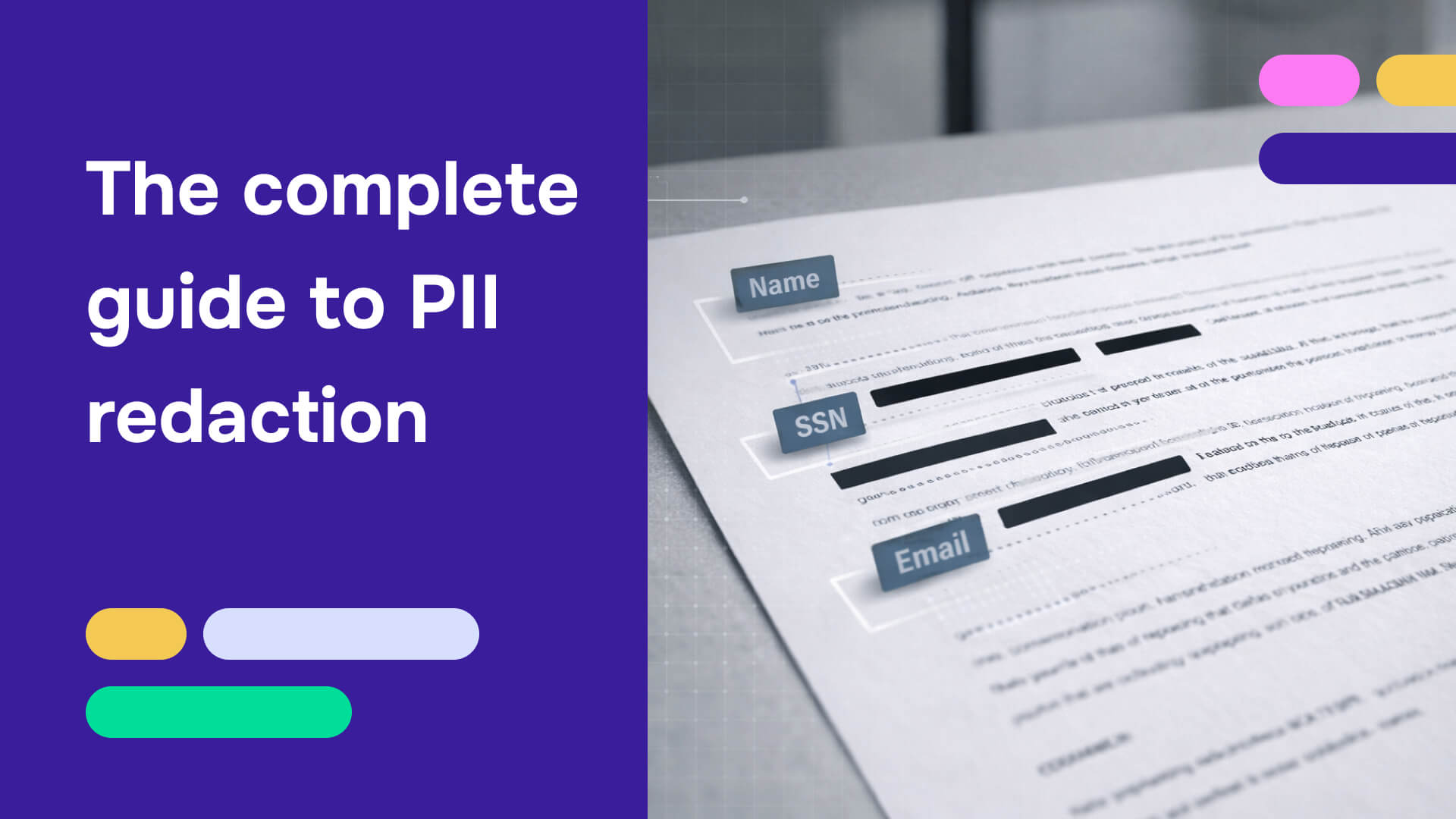A UK council published a Freedom of Information document without properly redacting names and addresses - leading to data exposure, regulatory investigation, and public embarrassment. In another case, Subject Access Request responses included internal staff notes, revealing private opinions never intended for disclosure.
These aren't isolated incidents. Following Brexit, UK organizations face a complex landscape of GDPR (General Data Protection Regulation) Brexit implications, and redaction failures are becoming increasingly costly.
The worst part? Organizations think they're protecting client data when they're actually broadcasting it to anyone who knows where to look. Understanding Brexit GDPR changes is crucial - with enforcement actions rising and penalties reaching up to £17.5 million or 4% of global turnover, proper redaction isn't just compliance - it's survival.
What is UK GDPR and how is it different from EU GDPR after Brexit?
UK GDPR is essentially the EU GDPR "copied" into UK law post-Brexit, working alongside the Data Protection Act 2018 (DPA 2018). While the frameworks are nearly identical, they now operate as separate legal regimes—meaning organizations operating in both regions must comply with both sets of rules, risking dual penalties for breaches.
The UK's Information Commissioner's Office (ICO) recorded 32 enforcement actions related to UK GDPR breaches in 2024, with most occurring in the public sector. This highlights the urgent need for robust redaction practices across all UK organizations.
The 7 principles of UK GDPR
UK GDPR is built on seven key principles that directly impact how you must handle redaction:
- Lawfulness, fairness and transparency: All data processing must be legal and transparent
- Purpose limitation: Data can only be used for specified purposes
- Data minimization: You must redact unnecessary personal data from shared documents
- Accuracy: Redacted information must remain accurate and not misleading
- Storage limitation: Unredacted data shouldn't be kept longer than necessary
- Integrity and confidentiality: Technical safeguards must protect data during redaction
- Accountability: You must demonstrate compliance with proper documentation
Each principle has direct implications for your data protection strategy, especially accountability—you must be able to prove your redaction practices meet UK GDPR standards.
Subject access requests (SAR): Your biggest redaction challenge
Subject Access Requests (SARs) represent the most common redaction challenge under UK GDPR. When individuals request access to their data, you have 30 days to respond—and the response must include only their data.
What must be redacted in SAR responses
- Third-party personal data: Information about other individuals mentioned in documents
- Special category data: Health records, ethnicity, religious beliefs, political opinions
- Commercial information: Trade secrets or sensitive business data not relevant to the requester
- Internal notes: Staff opinions, decision-making processes, or operational details
- Security information: Data that could compromise organizational security
The cost of SAR redaction failures
Improper SAR redaction can trigger ICO enforcement action. The ICO has issued reprimands to organizations for failing to redact sensitive data, emphasizing that lack of staff training and clear policies directly leads to redaction failures and data breaches.
Organizations must maintain detailed redaction logs documenting what was redacted and why—this documentation becomes critical during ICO investigations.
FOIA redaction: Additional complexity for public bodies
UK public sector organizations face dual obligations under both UK GDPR and the Freedom of Information Act 2000 (FOIA). This creates overlapping requirements that demand careful navigation.
Key FOIA redaction requirements
Section 40: Mandates redaction of personal data protected by UK GDPR
Section 43: Protects trade secrets and sensitive commercial interests
National security exemptions: Require extensive redaction to safeguard public safety
Public authorities must understand the distinction between redaction (removing exempt material) and extraction (separating requested information from other content). Importantly, authorities cannot charge for staff time spent on redaction—only for extraction and communication costs.
Why manual redaction keeps failing?
Manual redaction struggles with accuracy and consistency challenges. Human reviewers can miss personal identifiers in complex documents, and different staff members often apply redaction rules differently across similar cases. The 30-day SAR deadline creates time pressure that can lead to oversight errors, while large document volumes strain manual review processes.

Automated redaction tools address these consistency issues through systematic identification and removal of personal data. AI-based solutions can identify special category data that manual reviewers might overlook. However, under UK GDPR, the ICO and NCSC recommend combining automated tools with human oversight for optimal results, as no automated system is perfect and context-dependent decisions still benefit from human judgment.
ICO enforcement targets redaction failures
The ICO's enforcement arsenal includes fines reaching £17.5 million or 4% of global turnover, alongside enforcement notices and public reprimands. Recent actions demonstrate the regulator's laser focus on redaction compliance failures.
Organizations consistently fail ICO scrutiny for predictable reasons: inadequate staff training on redaction requirements, missing documented policies and procedures, failure to audit redaction practices, inappropriate tools that don't properly remove data, and missed deadlines due to inefficient processes. These aren't random failures—they're systemic problems that the ICO actively investigates.

Building bulletproof UK GDPR redaction compliance
Effective UK GDPR compliance requires three interconnected organizational changes:
- Comprehensive GDPR training programs must educate all staff handling personal data about their redaction responsibilities. These programs need documented policies specifying data types requiring redaction, approved tools and techniques, quality assurance procedures, and escalation processes for complex cases.
- Robust technical safeguards prevent unauthorized disclosure during redaction processes. Access controls limit redaction capabilities to authorized personnel, while audit trails track all redaction activities. Secure storage protects both original and redacted documents, and regular testing ensures redaction tools maintain their effectiveness over time.
- Senior leadership accountability drives organization-wide compliance. This means documented policies with clear responsibility assignments, regular reviews of redaction processes and outcomes, incident response procedures for redaction failures, and continuous monitoring of evolving ICO guidance.
Read also: GDPR redaction guidelines
Smart strategies for sustainable GDPR compliance
Smart organizations look beyond basic compliance to strategic approaches that reduce risk and complexity. Anonymization offers a powerful alternative when full redaction isn't required—anonymous data falls outside UK GDPR scope entirely, eliminating ongoing compliance obligations.
Comprehensive documentation creates your defensive foundation. Every SAR and FOIA response needs documented redaction rationale, creating essential evidence for ICO investigations while identifying process improvements. Regular audits of redaction practices should incorporate evolving ICO guidance, new redaction technologies, lessons from internal incidents, and changes in organizational data flows.
Organizations operating across borders face additional complexity. Compliance with both UK GDPR and EU GDPR requires understanding subtle differences between regimes and implementing processes that satisfy both sets of requirements simultaneously.
Preparing for regulatory evolution
The Data Use and Access Act's implementation in June 2025 signals continued regulatory evolution affecting redaction requirements. Organizations must monitor ICO announcements and adapt their redaction practices as the landscape shifts, rather than treating compliance as a one-time implementation.
The bottom line on UK GDPR redaction after Brexit
UK GDPR redaction isn't just about removing names from documents - it's about implementing systematic processes that protect personal data while meeting legal obligations. With ICO enforcement increasing and penalties reaching millions of pounds, organizations cannot afford redaction failures.
The solution lies in combining proper training, clear policies, and professional redaction tools that can handle the complexity of UK data protection requirements. Manual processes and basic PDF editors won't cut it when facing ICO scrutiny.
Ready to build UK GDPR-compliant redaction processes? See how Redactable helps organizations meet ICO standards while streamlining SAR and FOIA responses. Try Redactable free and test it with your actual documents.







